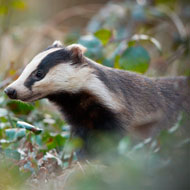BVA support for badger culls is "fragile"

Mr Blackwell said he is disappointed that this year's culls were not monitored by an independent body.
BVA's president John Blackwell has implied the organisation may withdraw its support for badger culling unless it is shown to be humane, effective and safe.
"We have made it very clear to Defra that our ongoing support should not be taken for granted," said Mr Blackwell in a statement.
Pilot culls began in Gloucestershire and Somerset last year, with the support of the BVA. However, a report by an independent expert panel (IEP) found them to be inhumane and ineffective.
Mr Blackwell added: "We have made it clear that we cannot continue to support the use of controlled shooting to deliver culling unless it can be demonstrated that it can be delivered humanely, effectively and safely."
A number of recommendations were made by the panel, which BVA called on Defra to implement before giving its support to the second year of the culls. However, after repeated calls to the secretary of state, the 2014 culls were not monitored by an independent panel.
"It is no secret that some of our members are frustrated by the lack of independent analysis this year and we are disappointed that it has not been put in place to give confidence to our members and the wider public."
Some members criticised the BVA for its initial support for the culls, however Mr Blackwell said the association bases its positions on evidence, "reflecting the wide range of expertise within our membership".
BVA Council made the decision to continue supporting the culls in their second year, however Mr Blackwell said the association "always recognised that this was a fragile consensus".
When the data has been published by Defra, the BVA will carry out its own assessment to determine whether the second year of culls has been humane and effective.



 The BSAVA has opened submissions for the BSAVA Clinical Research Abstracts 2026.
The BSAVA has opened submissions for the BSAVA Clinical Research Abstracts 2026.